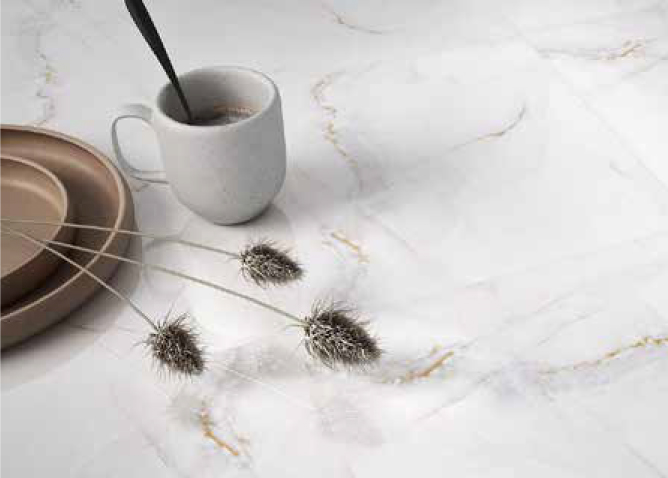FREE STANDARD DELIVERY INCLUDED FOR ONLINE ORDERS!
The ceramic glossary
What do these words mean?
A brief guide to learn the basic terms of the ceramic world.
Abrasion resistance
The ability of a floor to stand up to strain caused by the friction of foot traffic.
Absorption
The amount of water a tile can absorb. Generally, ceramic tiles have a low water absorption due to the tightness of the surface.
Bicottura tiles
Ceramic tiles made with a single firing of unglazed tiles, then coated with glaze and fired again. Bicottura tiles usually have a refined finish with deeper details and brighter colors than Monocottura tiles, but because of their softness, they better suit wall and backsplash applications.
Ceramic tiles
Surfaces made with different clays fired at a high temperature. Their surface may be glazed or unglazed.
Finish
The visual appearance of a tile surface. This may be polished, glazed or unglazed, textured, embossed, matte.
Fire resistance
The tile’s ability to resist fire and flames. Ceramic tiles are fireproof at all temperatures, they are not flammable and do not release toxic substances (Class 5).
Glaze
Surface layer made with natural or artificial colors through a second firing process.
Grip
Tiles finish that reduces the risk of slippery.
Grout
The material used during tiling to fill the joints between the tiles.
Honed Finish
A satin-smooth surface finish with little or no gloss.
Lappato
A tile finish also known as "Semi-Polished".
Marble
A metamorphic rock possessing a distinctive crystalline texture. Marble is typically softer than granite, and available in a wide spectrum of color and veining.
PEI rating
Porcelain Enamel Institute rating scale which express the amount of foot traffic a tile can handle.
Polished
A high-gloss finish that brings out the full color and character of a stone.
Porcelain stoneware
Porcelain tile is fired at a much higher temperature than regular ceramic tile. This makes porcelain tile much harder and denser than other tile products. Because of its highly durable make-up, porcelain is more resistant to scratches and chips and can withstand temperature extremes. Also, because porcelain is non-porous, it's very stain resistant, has very low water absorption ratings and thus can be used for interior and exterior applications as well as heavy-use and commercial areas.
Rectified
Manufacturing process assuring each tiles the same size and shape desired. This reduces tile joints, allowing for the creation of continuous surfaces.
Wall Tile
Tile that has a low hardness rating and is usually not recommended for floor use.


